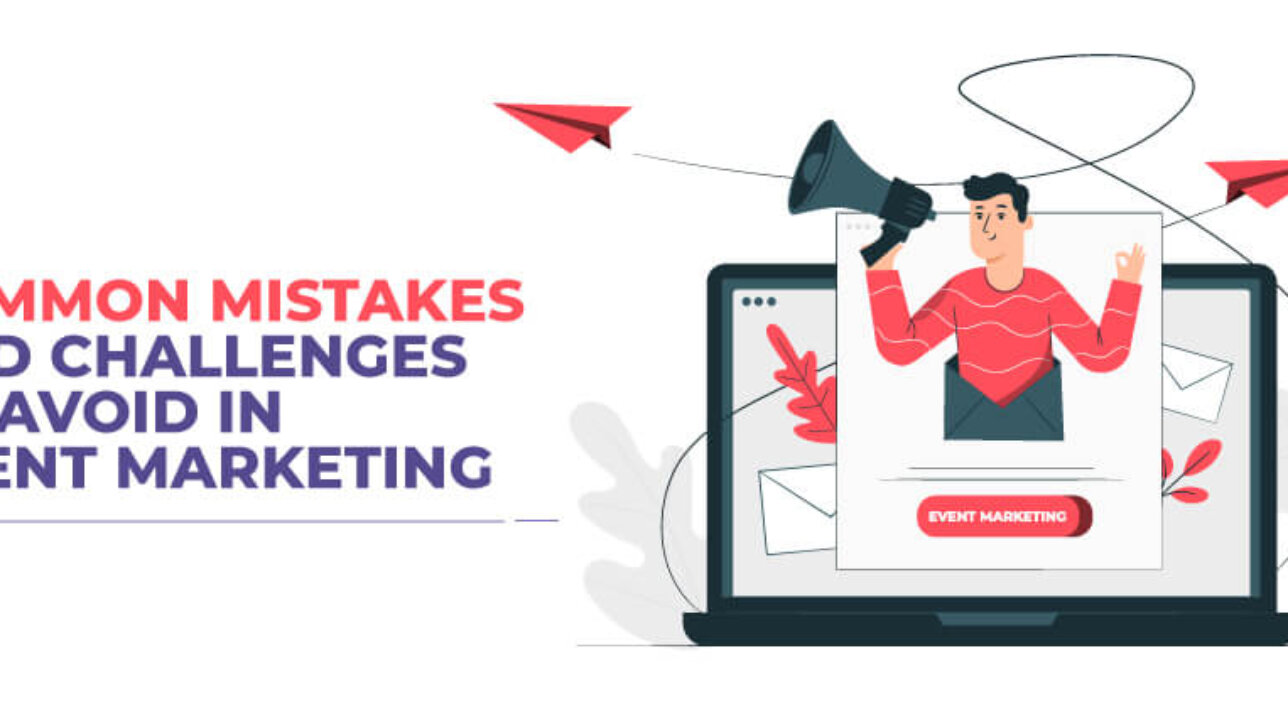As an event planner, you might underestimate the amount of time and work needed to plan a successful event and often make common mistakes along the way. If you ask a professional event planner, they will admit that event planning is no easy job. Your mistakes can result in alienated speakers, disinterested audiences and a loss of reliability that can affect your ability to plan future events.
Everybody wants to ensure that the event planning checklist they create before their event is fool-proof.
Let’s have a look at some common mistakes and challenges that event planners face and ways to avoid them.
Underestimating or overestimating the number of guests
The number of guests who attend your event will determine the size of your event space as well as the amount of food and beverages you will cater.
Let’s say your event is at capacity – time to celebrate!
But not before you figure out how you will organize it and get everybody seated. It’s a scenario, practically no one plans for but it does happen.

Keep a count on event forums, activity on your event app and social media mentions.
If the count of people on these platforms is higher than the number of people you were expecting to attend, then make changes to your plans accordingly.
Selection of Right Venue
It is critical to decide a perfect event venue for the event’s overall success and venue planning takes time.
While you plan for a venue, one of the most crucial pieces of information you must know is who will be your audience and how many you expect to attend.
Make sure that you know at least an accurate estimate of the number of attendees as this decision will limit your venue options.

Also keep in mind the the amenities a venue can facilitate such as parking, catering, security and many more. Don’t forget to take consideration of your audience. Be sure that the venue reflects not only the event but the guests’ tastes and expectations.
To make it more clear you can refer to our blog ‘How to choose the right venue for an event.’
Budget
The basic cost of an event includes the expenses of the venue, catering and other required amenities, and should be the first thing to be included in your budget.
Whether the budget given to you by your client is small, sufficient, or extravagant, still it can be challenging to work with. Lots of unexpected things come up during the event planning process, it’s best to keep your expenses adequate.
Check previous event budgets and determine what you can do better this time around.

Along with the budget of your event, you may have additional money coming from sponsors or ticket sales.
Have a realistic budget estimate, it will help you avoid unpleasant surprises. If you can rely on this money as an extra budget, perhaps you can provide additional experiences to your guests, invest in higher-ranking speakers, or use it to attract more attendees. It’s up to you.
No brand loyalty
One of the most essential aspects of your attendees’ experience is to engage with your organization and this is where brand loyalty comes into the picture.
If we talk about conventional approach to event marketing, your attendees remember you only when you push out your marketing messages. And since this only happens right before the event, your attendees have no real reason to remember your brand.
You are not the only one competing for their attention, there are many event companies out there.
Be a part of your attendees’ inbox or their weekly reading list. If you don’t have a relationship with your attendees, you have no real brand loyalty.
Brand your event at every stage of the event lifecycle, from pre-event to post-event. Take it a step further, engage your clients and let them become the speakers.
This will not only turn your clients into opinion leaders, but attendees also benefit greatly by learning from their peers.
People will listen to how your brand helped other people solve their challenges and achieved success will likely convince other attendees to explore and attend your event.
Under-staffing
Under-staffing is a major problem for events. And it often doesn’t become obvious until the day of, when it’s too late to do anything. So prevention is definitely key.
Talk to all stakeholders associated with your event and get detailed information on what they need help with during the event day. List down the functions and who will be performing them along with the designation and detailed description of each function. Make an estimate of how many staff members you would need as per the number of attendees you are expecting for your event.
You will not get an exact answer till the day prior to the event. So prepare alternatives and be ready. Don’t stick to this number and have a separate team of volunteers who can show up as the need arises.
Lack of a Plan B
You never know, anything can go out of plan during the event.
Don’t stick to one plan, always be ready with an alternative plan. If plan A can’t be applied to the given circumstances you can switch to plan B.
While you can’t predict the future, be ready to expect the unexpected.

Let’s take the case of under-staffing.
You have assumed that the number of staff members present at the time of event will be sufficient to manage your event requirements. But at the time of event some urgent requirement arises and you have limited staff. In such a case be ready with the extra volunteers in advance who can handle it.
Assess the risks associated with various factors and prepare contingency plans at the time of planning itself. This will allow you to understand and eradicate the flaws in your plan.
Time Management
An event planning checklist is a definite must-have but at the same time it is of no use if your client doesn’t understand the associated timeline. It isn’t your client’s area of expertise to plan out a checklist and it shouldn’t be their concern. You have to prioritize the tasks and schedule them accordingly.
Your client may have many big ideas about the decor and the ambiance and the guest list when you discuss the plans of the event with them. But if there is no thought to the venue, you as an event planner really don’t have a place at which to start.

So structure the checklist like a timeline and provide it to your clients at the first meeting. This is how the client will get a glance, which decisions they need to prioritize.
Make sure that all the team members who are involved in the planning, carrying out, setting up of the event knows the timeline both leading up to the event, and the timeline for the day of!
Travel & Accommodation
When it comes to international events where attendees have to travel long distances to attend, it can get a little difficult to manage and take care of your attendees. Most of the times, it’s the responsibility of the attendee to plan and manage their travel.
It makes the marketing of the event more difficult as the conversion rates will be less as compared to the number of registrations. Even visa can create a problem. For instance, most foreigners will need a visa to enter with a certain degree of failed visas to be expected.
In case you offer VIP tickets or inviting speakers, it gets a little tricky as this is when you’ll need to take care of your special guests. You have to provide special treatment to these VIPs and special guests, and therefore the event should take care of their travel and housing.
Make sure that they get their visas. That means book their flights in advance and make arrangements for their accommodation. Inorder to minimize mistakes and avoid these pitfalls, focus on the above mentioned points and research effective methods that get results you want.
Form a good event strategy and ensure your campaign is planned out in advance. Draw up an action plan based on all the risks that can come up throughout the entire process and plan a successful event now and in the future.
Don’t wreck your event, rather rock it!






